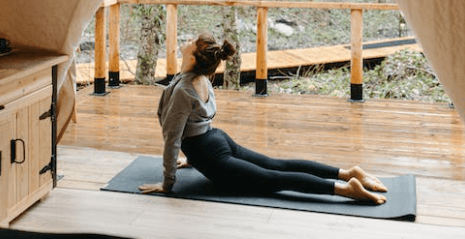Coping with the Physical and Psychological Health Impacts of the Pandemic
Ideas, facts & insights covering these topics:
6 ideas
·132 reads
2
Explore the World's Best Ideas
Join today and uncover 100+ curated journeys from 50+ topics. Unlock access to our mobile app with extensive features.
Introduction
- The COVID-19 pandemic has had a significant impact on physical and mental health globally. The virus has led to widespread illness and death, as well as increased stress, anxiety, and other mental health issues. Understanding the pandemic's impact on both physical and mental health is crucial for effective management and support.
- It's important to take care of oneself during challenging times to maintain physical and mental well-being. This can include prioritizing self-care activities, establishing a daily routine, staying connected with others, and seeking professional help if needed.
2
23 reads
Physical Health Impacts
- The pandemic has affected physical health in various ways, including increased risk of infection, delayed medical care for non-COVID-19 conditions, and decreased physical activity due to social distancing measures.
- Common physical health issues that have arisen due to the pandemic (e.g. weight gain, poor sleep, decreased physical activity).
- Strategies for addressing these physical health issues (e.g. exercise, healthy eating, good sleep hygiene).
2
23 reads
Psychological Health Impacts
- The pandemic has had a significant impact on mental health, with many people experiencing stress, anxiety, depression, and loneliness. Social isolation, financial difficulties, and uncertainty about the future have contributed to this.
- Common psychological health issues that have arisen due to the pandemic (e.g. anxiety, depression, loneliness).
- Strategies for addressing these psychological health issues (e.g. seeking professional help, practicing self-care, staying connected with loved ones).
2
21 reads
Coping with Uncertainty and Change
- Strategies for coping with uncertainty and change during the pandemic (e.g. mindfulness, focusing on what is in one's control, setting achievable goals).
- Staying flexible and adapting to changing circumstances is crucial during the pandemic. With so much uncertainty, being able to adjust to new situations can help individuals maintain a sense of control and reduce stress. It's important to focus on what is within one's control and be open to new ways of thinking and living.
2
23 reads
Building Resilience
- Resilience is the ability to bounce back and adapt in the face of adversity. It is important during times of stress and uncertainty because it helps individuals cope with difficult situations and maintain a sense of well-being. Resilience can be developed and strengthened through various practices and strategies.
- Strategies for building resilience (e.g. cultivating a positive mindset, practicing gratitude, engaging in hobbies and interests).
2
19 reads
Conclusion
- During the pandemic, it is important to prioritize physical and mental health to maintain overall well-being. This can include incorporating healthy habits such as regular exercise, healthy eating, and stress-reducing activities. Seeking support from loved ones or professionals can also be helpful in managing stress and maintaining mental health.
- Focus on the positive aspects of life and maintain a positive outlook, even during challenging times.
2
23 reads
IDEAS CURATED BY
CURATOR'S NOTE
mental health.
“
Read & Learn
20x Faster
without
deepstash
with
deepstash
with
deepstash
Personalized microlearning
—
100+ Learning Journeys
—
Access to 200,000+ ideas
—
Access to the mobile app
—
Unlimited idea saving
—
—
Unlimited history
—
—
Unlimited listening to ideas
—
—
Downloading & offline access
—
—
Supercharge your mind with one idea per day
Enter your email and spend 1 minute every day to learn something new.
I agree to receive email updates





